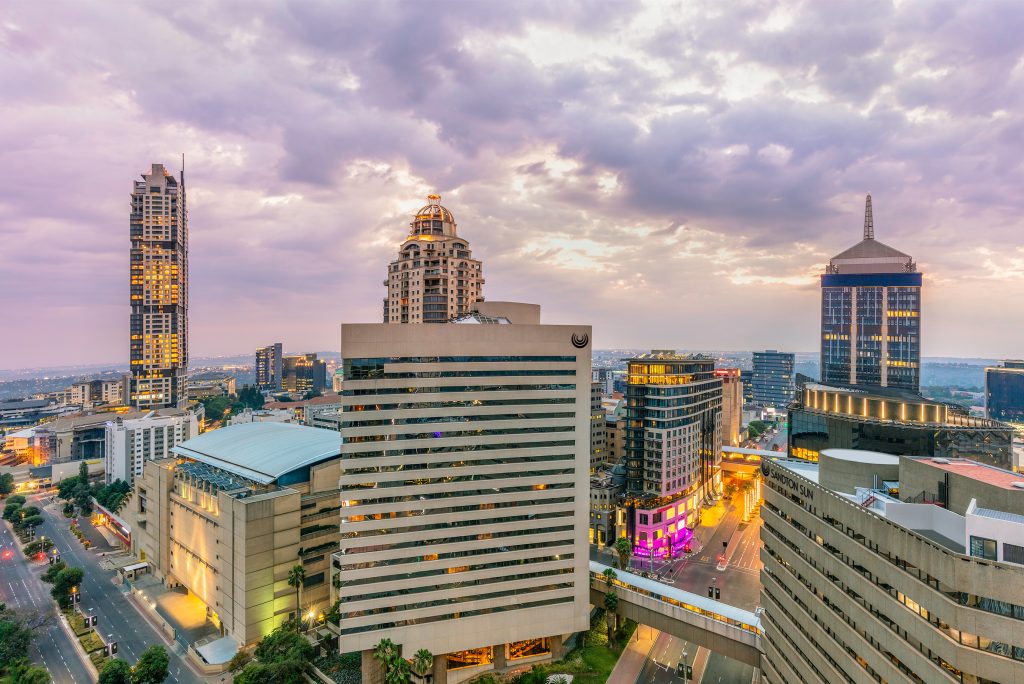
The year has begun with significant volatility. We’ve observed notable fluctuations in global markets, shifting geopolitical landscapes, and ongoing instability driven by persistent macroeconomic challenges. It’s quite astonishing to note that the first quarter has already concluded.
The South African real estate market is not immune to these overarching trends. Often underestimated and regarded as a singular entity, this sector includes a diverse range of asset classes: office, retail, residential, industrial, and alternative real estate assets, such as data centers, cold storage facilities, and student housing, among others.
ADVERTISEMENT
CONTINUE READING BELOW
Performance varies across these categories. As Africa’s largest bank by assets (R3.3 trillion as of FY 2024), Standard Bank actively monitors and evaluates real estate trends. Despite macroeconomic challenges, the sector has shown impressive resilience.
Alongside global pressures, the real estate market contends with persistently high interest rates, lingering impacts from the post-Covid-19 recovery, and sluggish domestic growth in South Africa. These factors have influenced each asset class in distinct manners.
Office trends
Office rentals have shown unexpected strength. The national weighted decentralized vacancy rates for grades A+, A, and B office spaces dropped to 12.6% in Q4 2024, down from 14.4% in Q4 2023.
The shift back to physical offices is gaining momentum as hybrid working fatigue sets in, prompting companies to prioritize in-person collaboration. Globally, organizations like Amazon, IBM, JP Morgan Chase, Tesla, Zoom, and Google have implemented return-to-office mandates.
On a local level, a similar trend is emerging: more companies are encouraging employees to return to offices, driven by benefits such as faster onboarding for new hires, enhanced collaboration, and more effective strategic planning and execution.
Retail trends
The retail sector has experienced a remarkable recovery. Foot traffic and occupancy rates have now surpassed pre-pandemic levels in several key markets across Africa. This asset class is also enjoying low vacancy rates (5.5% FY 2024) and an increasing implementation of solar PV projects to manage operational costs.
Acknowledging these trends, Standard Bank has recently launched a renewable bond aimed at providing access to affordable sustainable funding for such initiatives, thereby easing pressure on electricity grids. Furthermore, we have witnessed a rise in urban consolidation, leading to innovative precinct developments that integrate residential, retail, and cultural spaces into cohesive environments.
Residential trends
The ongoing structural shortage of affordable housing in the country remains a challenge. According to the Centre for Affordable Housing Finance in Africa, the total value of South Africa’s residential property market reached R6.9 trillion in 2024, encompassing 6.91 million properties.
Residential assets represent 89.3% of total property volume, highlighting their significance in household wealth. Notably, government-subsidized housing (GSH) accounts for 32% of total residential units, approximately 2.18 million homes. This underscores considerable potential for scalable investment and impact.
Standard Bank is committed to supporting clients like Calgro M3 with sustainable finance solutions to enhance developments such as the Bankenveld District project in Sandton.
Encouragingly, the residential market is experiencing lower vacancy rates, increased investment in build-to-rent and build-to-sell projects, and a steady rise in rental yields.
Industrial trends
The industrial sector stands out as the top performer across the board. This asset class is benefitting from the growth in e-commerce, the reshoring of supply chains, and robust demand for warehousing solutions.
Vacancy rates have declined by 2.1%, and rental growth has exceeded 5% year-on-year. Additionally, there is an increase in tenant-driven developments and sale-and-leaseback structures, allowing manufacturers to maintain focus and unlock capital for core operations.
ADVERTISEMENT:
CONTINUE READING BELOW
Alternative Assets
Data centers, cold storage, and student housing are emerging as strategic sub-sectors. Their growth reflects changes in technology, food logistics, and urbanization, presenting new investment opportunities.
Relevance of physical real estate
According to Standard Bank’s internal estimates, the South African commercial real estate sector is valued at approximately R1.9 trillion, a significant increase from the R1.3 trillion recorded in 2015, highlighting the sector’s growth over the last decade.
When combined with the estimated value of the residential property market (R6.9 trillion), the total market size exceeds R8.8 trillion (as of the end of 2024). It’s essential to recognize that these valuations may not fully represent the entire market, as certain segments like government-owned properties, hospitals, hotels, and multi-dwelling residential units might be underreported in municipal data.
This considerable figure underscores the enduring significance of physical real estate assets, even as digital and virtual platforms gain prominence.
The future of real estate in Africa
While we acknowledge the trends within physical real estate, we also recognize the benefits of digitization. It has proven to be a crucial element in addressing client needs.
Yet, for many across the continent, physical infrastructure remains vital. Whether visiting a favorite retail outlet, collaborating in an office, or living in secure housing, real estate continues to shape our daily experiences.
Striking a balance between innovation and tradition will be crucial moving forward. At Standard Bank, we are committed to supporting our clients through market fluctuations with clarity, precision, and a long-term perspective. We believe that real estate plays a vital role in fostering Africa’s economic future.
The ancient Greeks defined excellence as “a state of being at the highest possible level, encompassing both physical and moral qualities.”
In this spirit, we continue to partner with like-minded clients who view Africa’s success as integral to global prosperity. Our Group’s purpose is reflected in our daily operations: “Africa is our home and we drive her growth.”
* Simon Fiford is Senior Vice President of Real Estate Coverage at Standard Bank.
Follow Moneyweb’s in-depth finance and business news on WhatsApp here.






